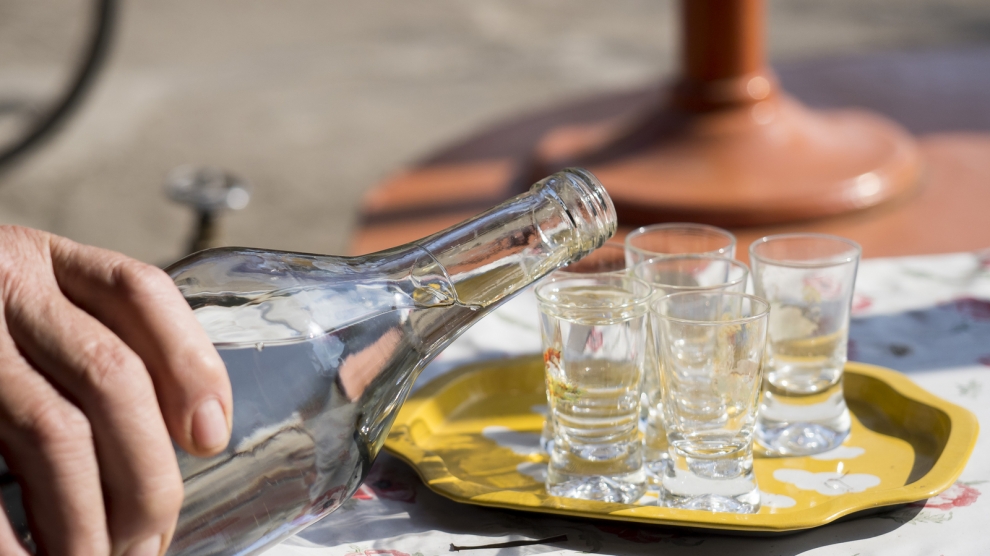A selection of articles about emerging Europe published elsewhere this week, all of which caught our eye and all of which are well worth your time. Listing them here, however, does not necessarily mean that we agree with every word, nor do they necessarily reflect Emerging Europe’s editorial policy.
Bernard-Henri Lévy, philosopher, activist, filmmaker, and author of over 30 books first met Hungary’s prime minister Viktor Orbán almost three decades ago. At the time, Orbán was one of the brightest figures in the victorious opposition to the Soviet order. He was the young author of a master’s thesis on the Polish Solidarity movement, which he had written while attending Oxford with the help of a grant from George Soros. Last month, for an interview for The Atlantic, the two men met again.
—
An extended family met a grim end when 15 of them were brutally murdered — killed by vicious blows to the head — about 5,000 years ago in what is now Poland. But though these victims were violently killed, whoever buried them did so with care, placing mothers next to children and siblings side by side, a new study shows.
—
The “white supremacist” views held by some parliamentarians do not represent the views of the Estonian people, President Kersti Kaljulaid insisted, after populist MPs were pictured alongside France’s far-right leader Marine Le Pen.
—
At the onset of the Yugoslav wars in 1991, Jacques Poos, then Luxembourg’s foreign minister, praised the EU’s peacemaking efforts as a sign that “the hour of Europe has dawned”. His hubris presaged a terrible darkness that descended on south-eastern Europe. The limitations of soft EU power were never more brutally exposed than during the atrocities that raged across Croatia and Bosnia-Herzegovina until halted by NATO military action and US-led diplomacy. Now the EU is on the verge of another historic blunder in the Balkans.
—
Romania and Hungary are pushing the EU to make it easier for orchard farmers to distill their own fruit brandy, a traditional practice in east and central Europe that is restricted in the bloc on health grounds. The former communist states, both of which have clashed with the EU over accusations of undermining civil rights, have taken to describing the right to distill fruit brandy as a fight for freedoms.
—
The nationalist Polish government, often criticised by the EU for its authoritarianism, has set up a generous child benefit programme in a bid to woo voters. But not everyone is happy.
—
As Romania’s chief anti-corruption prosecutor, Laura Codruța Kövesi put dozens of Romanian politicians and officials behind bars. Ousted by the government last year and relegated to a strategy job, she’s now waiting to hear whether she will land a job in Brussels as Europe’s top prosecutor charged with investigating cross-border European Union fund and sales-tax fraud.
—
With its mix of generous incentives, professional crews and state-of-the-art facilities, it’s no wonder Eastern Europe is hosting everything from art house hits (‘Cold War’) to tentpoles and high-end TV.
—
Brexit is a worrying lesson for Poland. The country gets more money from the EU than anywhere else. Yet it’s a key battleground in this month’s European elections.
—
The Kremlin’s attempt to prevent North Macedonia joining NATO created some difficulties but proved to be rather clumsy and damaging to Russia’s own interests. With the accession appearing to be a done deal, Russia is now likely to lose interest in North Macedonia.
—
Across the United States, Republican-controlled legislatures are outlawing abortion, with the hope of bringing the issue before a sympathetic Supreme Court. If they succeed in revoking women’s reproductive rights, the US will quickly become a different society – one resembling communist-era Romania.
—
An artist has revisited famous images from the Kosovo war. For “Family Album” Alban Muja invited four people to reflect on photographs of themselves taken two decades ago as part of an installation at the Venice Biennale.






Add Comment